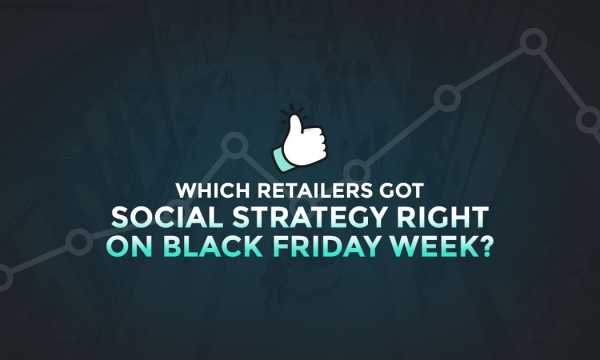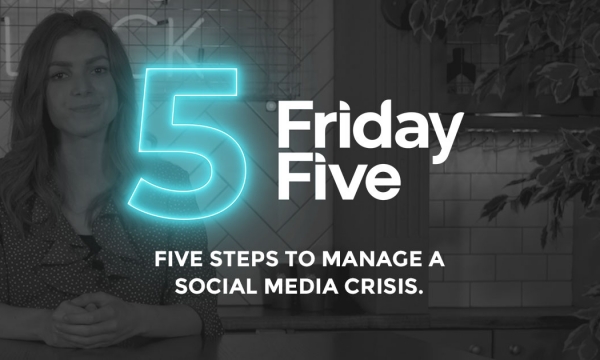
The 2014 World Cup was very much a social tournament. Germany’s spectacular 7-1 semi-final victory over Brazil generated 35.6m tweets, making it the most talked-about sporting event in history. There were one billion Facebook interactions during the tournament and 2.1 billion searches on Google.
For brands, this presented a massive opportunity to be part of a global conversations but, predictably, there were mixed results.
Who got it right?
These were the brands that really hit the mark, getting their content right, their timing spot-on and earning the attention of their audiences.
adidas
It’s a team game, but an entire nation wins. #allin pic.twitter.com/snZUtMPXnS
— adidas (@adidas) July 13, 2014
There’s an important fact to get out of the way here early on; adidas got lucky. Sunday’s final between Germany and Argentina was contested by two adidas-sponsored teams so, regardless of the result, the brand would have been onto a winner.
But there is no doubting that adidas, a brand that is already huge on real-time marketing, seized that opportunity, generating close to 1.6m conversations across social media to become the most talked-about brand at this year’s tournament.
The brand enjoyed a 5.8m increase in followers across all of its major social platforms, with adidas Football growing by 14.5% and its #allin hastag being used 917,000 times.
Specsavers
Should've gone to Specsavers #SHGTS #ITA vs #URU pic.twitter.com/9LZxluxVCW
— Specsavers (@Specsavers) June 25, 2014
Lots of brands sunk their teeth into the Luis Suarez biting incident, with mixed results. Whilst a special mention goes to Snickers, Peperami and McDonalds Uruguay, we give the honour to Specsavers.
In terms of content, their tweet on the incident was creative, relevant and suitably cheeky. It earned them close to 30,000 retweets and more than 13,000 favourites.
Coca-Cola
Whilst adidas was the leading brand on social media, it was Coca-Cola that led the way on Facebook, growing its audience by more than 2.5 million people to a staggering 85 million. Visa grew its audience numbers by the second-largest amount, ahead of adidas and McDonalds.
The brand earned more than one million interactions throughout the tournament, a figure only bettered by the Brazilian bank Itau.
Lufthansa
The best extra weight we've ever carried! pic.twitter.com/qaknvITdGy
— Lufthansa (@lufthansa) July 13, 2014
Within minutes of the final whistle sounding in Rio, German flag carrier Lufthansa was leading the cheers. Of course, plenty of us have had issues with overweight baggage at check-in and Lufthansa cleverly played on this, earning more than 15,800 retweets.
Who got it wrong?
So who didn’t get things right and, more importantly, why?
KLM

Celebrating a victory for your team is one thing. Sending out a tweet that is largely considered to misuse racial stereotypes is quite another.
There was clearly no malice in this tweet from KLM Royal Dutch Airlines, posted seconds after the Netherlands knocked Mexico out of the tournament, but it was misguided – and the Twitter community let them know about it.
The airline deleted the tweet shortly after and made a public apology.
Budweiser
There was clearly an influence from Paul the Octopus in this Budweiser campaign, but their ‘Puppy Predictor’ failed to hit the mark.
Despite the beer brand being an official World Cup sponsor, with a huge social following, its videos managed just a handful of views and very little engagement.
Delta Airlines
Delta really tweeted this. pic.twitter.com/jS0qSP7ylm
— Cpt. Inappropriate (@iN3RT_) June 17, 2014
Another airline to make the list is American carrier Delta Airlines who, to celebrate the USA’s victory over Ghana, tweeted a photo of a giraffe to represent the African nation.
Unfortunately for Delta, giraffes aren’t found anywhere in Ghana and, unsurprisingly, Tweeters made sure that they knew this.
As KLM did with their tweet, the airline removed the offending post and issued an apology. A little research clearly goes a long way.
Get in touch to find out more about our approach to social media.


